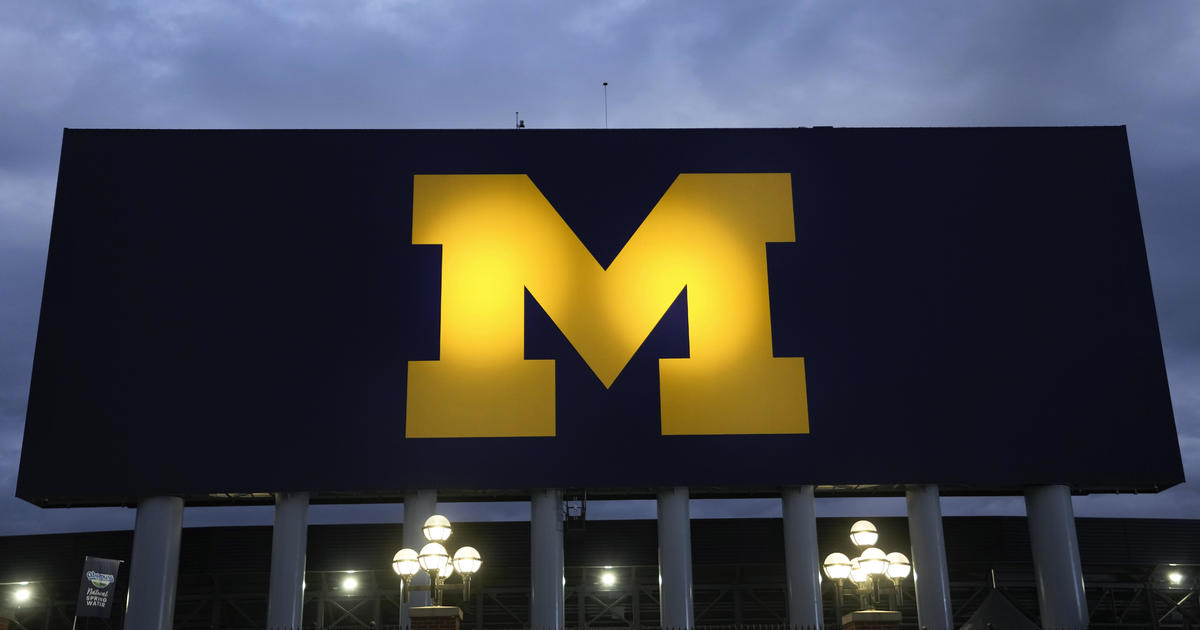Flint To Get More State, Federal Aid For Water Bills, Pipes
LANSING (AP) - State and federal officials acted to send more help to Flint to deal with its lead-contamination crisis, as the Michigan House approved $30 million on Thursday to help pay residents' water bills and Gov. Rick Snyder announced a $2 million grant to help the city replace some of its pipes.
The federal government is giving $500,000 to two health centers that are treating and testing Flint residents exposed to the lead-tainted water.
That aid comes as a new congressional report by the nonpartisan Congressional Research Service said the Environmental Protection Agency waited too long to take enforcement action after learning of elevated lead levels in Flint's tap water. The EPA says it urged a quicker state and local response.
Snyder, who has apologized for his administration's role in the lead contamination, credited lawmakers for working to get funding to the city quickly.
"Flint residents should not have to pay for water they cannot drink," Snyder said after House lawmakers unanimously approved the $30 million to help pay about 65 percent of the drinkable water portion of their bills. Residential customers would still have to pay for water used to flush toilets or do laundry.
The measure now goes to the Senate, which is expected to approve it and send it to the governor for his signature.
Snyder also announced that the $2 million to help Flint replace some of its lead pipes should happen within the next 30 days. The governor said the pipe project will start with priority lead lines, with the help of estimates from the Lansing Board of Water and Light, which has replaced much of Lansing's lead piping in the past.
The new funding would pay for pipe replacement in several hundred homes, but the Flint City Council and the city's chief financial officer still have to take action to receive the grant funding.
Flint's tap water is contaminated with lead because the city for 18 months used water from the Flint River without reducing corrosiveness. The water leached lead from old home plumbing. If consumed, lead can cause developmental delays and learning disabilities in children.
Environmental regulators in Snyder's administration repeatedly downplayed the threat until Flint doctors last fall pounded the table with results of lead tests from children.
Snyder, asked about his role in the events that led up to the water crisis, provided an impassioned response Thursday, saying he wants "to fix this problem" and that he is "trying to stand up and take responsibility like our value system says we should."
The Congressional Research Service report, meanwhile, said the EPA did not use its emergency powers to protect human health until January — nine months after officials became aware of water contamination in Flint. It says states have first-line enforcement responsibilities, but the EPA is required to take enforcement action if a violation continues 30 days after the agency notifies the state and water utility of an infraction.
EPA officials said the agency worked within the framework of the law to "repeatedly and urgently communicate" steps that the state of Michigan and city of Flint needed to take to properly treat Flint's water. A spokeswoman said the EPA's ability to oversee the situation was limited by "resistance and failures at the state and local levels to work with EPA in a forthright, transparent and proactive manner."
Snyder has said he's hopeful that the federal government will expand Medicaid coverage to people under 21 and pregnant women who have been exposed to Flint's water. He said it could benefit about 15,000 people.
The money being approved for Flint water bills would provide a credit for the estimated portion of the water that has been or will be used for drinking, cooking or bathing from 2014 until this spring, when officials hope the water is declared safe to drink again without a filter.
Some Democrats say the state should pay for more than 65 percent of residents' bills. Rep. Sheldon Neeley, D-Flint, offered an amendment to double the figure to $60 million during the House session Wednesday. But the proposal couldn't get sufficient support in the Republican-controlled Legislature.
"To make Flint's residents pay for even 1 percent of their poisoned water is a terrible mistake," Neeley said in a statement.
Copyright 2016 The Associated Press. All rights reserved. This material may not be published, broadcast, rewritten or redistributed.



